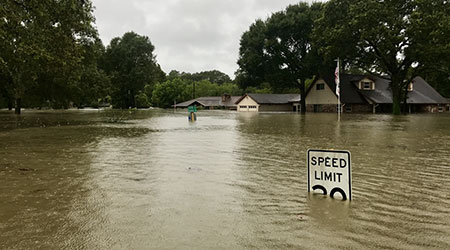As climate change brings ever-more frequent floods to the low-set Medical Mile in Charleston, S.C., some wonder whether the region’s medical institutions should be there. Flooding has sapped an estimated $45 million from them in the past five years, according to an article on the Post Courier website.
Medical University of South Carolina committed to a 20-year expansion plan in the early 2000s. The hospital system banked on flooding issues being fixed. But the flooding has continued. During a tropical storm in 2017, personnel criss-crossed the campus in boats. MUSC even bought a military surplus high-water vehicle to make sure staff can move between hospitals.
Billions in investments made over more than 200 years have cemented three hospitals’ futures in a low-lying basin.
Charleston’s Medical District was built on some of the most vulnerable land in the city. But the concentration of care here is the result of centuries worth of decision-making and inertia, according to the article.
In recent years, hospitals have moved to build new facilities inland and away from rising waters, but investments into the peninsula continue.
Flooding damage can take a considerable time to repair. Grady Memorial Hospital in Atlanta estimated repair of flooding damage caused in early December to take 9 months, according to an article on the WABE website.
Read the Post and Courier website.

 The Future of the Global Hospital Hygiene Market
The Future of the Global Hospital Hygiene Market Rethinking Fire Safety Inspections
Rethinking Fire Safety Inspections The Ohio State University Wexner Medical Center Officially Opens
The Ohio State University Wexner Medical Center Officially Opens Healthcare and Resilience: A Pledge for Change
Healthcare and Resilience: A Pledge for Change Texas Health Resources Announces New Hospital for North McKinney
Texas Health Resources Announces New Hospital for North McKinney